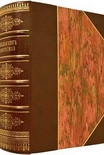Myths and Legends of China by E. Werner (free ebook reader for iphone TXT) 📗

- Author: E. Werner
Book online «Myths and Legends of China by E. Werner (free ebook reader for iphone TXT) 📗». Author E. Werner
Periods Fertile in Myth
What we should expect, then, to find from our philosophical study of the Chinese mind as affected by its surroundings would be barrenness of constructive imagination, except when birth was given to myth through the operation of some external agency. And this we do find. The period of the overthrow of the Yin dynasty and the establishment of the great house of Chou in 1122 B.C., or of the Wars of the Three States, for example, in the third century after Christ, a time of terrible anarchy, a medieval age of epic heroism, sung in a hundred forms of prose and verse, which has entered as motive into a dozen dramas, or the advent of Buddhism, which opened up a new world of thought and life to the simple, sober, peace-loving agricultural folk of China, were stimuli not by any means devoid of result. In China there are gods many and heroes many, and the very fact of the existence Page 69of so great a multitude of gods would logically imply a wealth of mythological lore inseparable from their apotheosis. You cannot—and the Chinese cannot—get behind reason. A man is not made a god without some cause being assigned for so important and far-reaching a step; and in matters of this sort the stated cause is apt to take the form of a narrative more or less marvellous or miraculous. These resulting myths may, of course, be born and grow at a later time than that in which the circumstances giving rise to them took place, but, if so, that merely proves the persistent power of the originating stimulus. That in China these narratives always or often reach the highest flights of constructive imagination is not maintained—the maintenance of that argument would indeed be contradictory; but even in those countries where the mythological garden has produced some of the finest flowers millions of seeds must have been sown which either did not spring up at all or at least failed to bring forth fruit. And in the realm of mythology it is not only those gods who sit in the highest seats—creators of the world or heads of great religions—who dominate mankind; the humbler, though often no less powerful gods or spirits—those even who run on all fours and live in holes in the ground, or buzz through the air and have their thrones in the shadow of a leaf—have often made a deeper impress on the minds and in the hearts of the people, and through that impress, for good or evil, have, in greater or less degree, modified the life of the visible universe.
Sources of Chinese Myth
“So, if we ask whence comes the heroic and the romantic, which supplies the story-teller’s stock-in-trade, Page 70the answer is easy. The legends and history of early China furnish abundance of material for them. To the Chinese mind their ancient world was crowded with heroes, fairies, and devils, who played their part in the mixed-up drama, and left a name and fame both remarkable and piquant. Every one who is familiar with the ways and the language of the people knows that the country is full of common objects to which poetic names have been given, and with many of them there is associated a legend or a myth. A deep river’s gorge is called ‘the Blind Man’s Pass,’ because a peculiar bit of rock, looked at from a certain angle, assumes the outline of the human form, and there comes to be connected therewith a pleasing story which reaches its climax in the petrifaction of the hero. A mountain’s crest shaped like a swooping eagle will from some one have received the name of ‘Eagle Mountain,’ whilst by its side another shaped like a couchant lion will have a name to match. There is no lack of poetry among the people, and most striking objects claim a poetic name, and not a few of them are associated with curious legends. It is, however, to their national history that the story-teller goes for his most interesting subjects, and as the so-called history of China imperceptibly passes into the legendary period, and this again fades into the mythical, and as all this is assuredly believed by the masses of the people, it is obvious that in the national life of China there is no dearth of heroes whose deeds of prowess will command the rapt attention of the crowds who listen.”2
The soul in China is everywhere in evidence, and if myths have “first and foremost to do with the life of the soul” it would appear strange that the Chinese, Page 71having spiritualized everything from a stone to the sky, have not been creative of myth. Why they have not the foregoing considerations show us clearly enough. We must take them and their myths as we find them. Let us, then, note briefly the result of their mental workings as reacted on by their environment.
Phases of Chinese Myth
We cannot identify the earliest mythology of the Chinese with that of any primitive race. The myths, if any, of their place of origin may have faded and been





Comments (0)